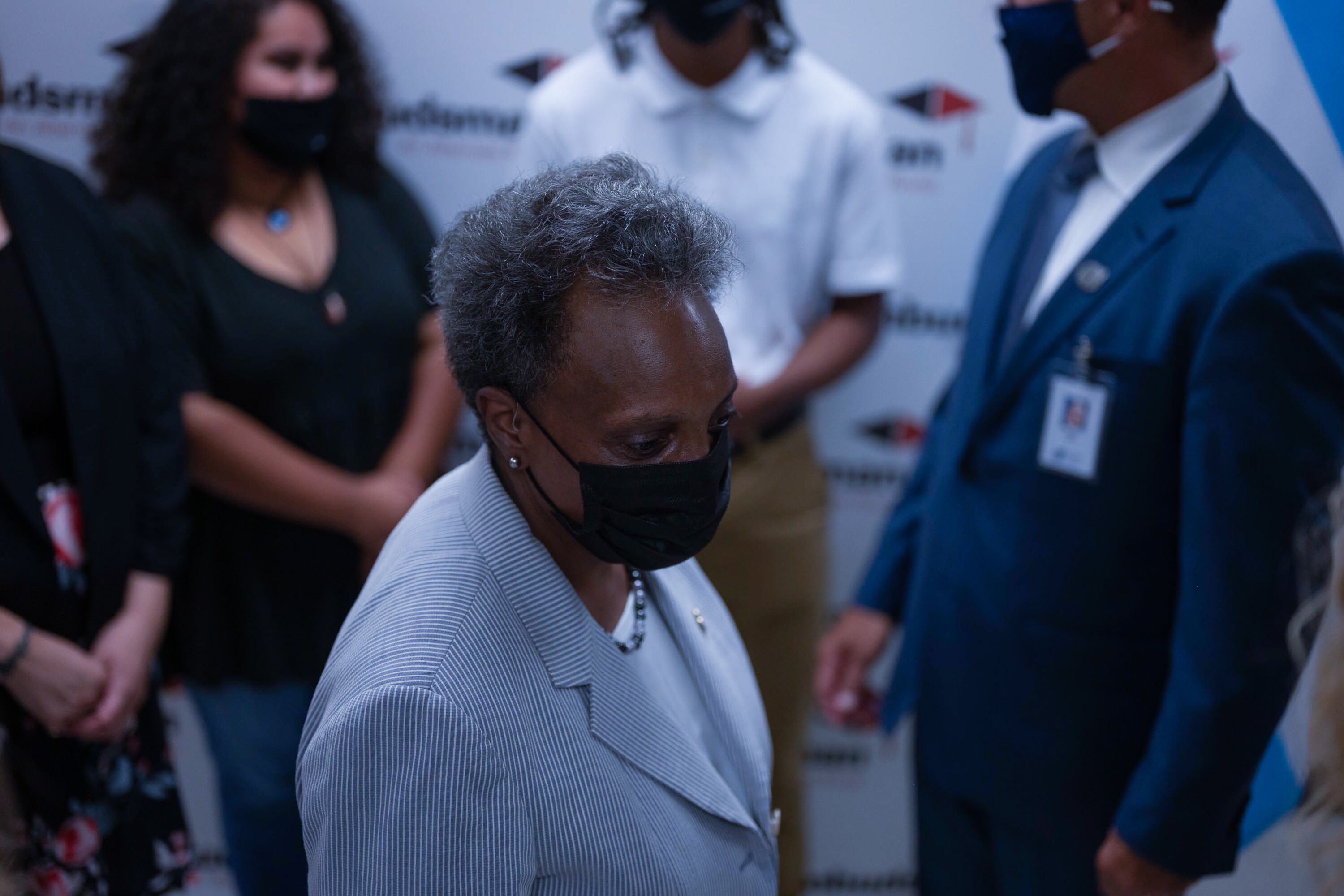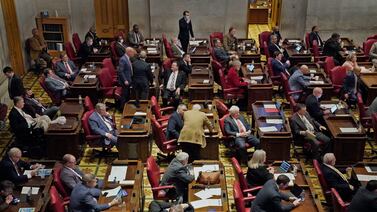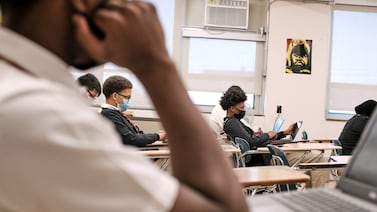Arguing that a Sept. 30 cutoff date is “irresponsible” and “inequitable,” Chicago Mayor Lori Lightfoot has petitioned the federal government to extend the city’s Head Start funding in full until June 2022.
In a blow to City Hall, the federal government confirmed this summer that it is breaking up Chicago’s early learning monopoly and redistributing $95 million of a $145 million annual grant to five community program operators. In that process, nine agencies were defunded entirely.
Without intervention, nearly 1,000 low-income children under 5 could be forced to transfer mid-school year to other preschool programs and child care centers, city officials have said.
According to City Hall sources, the mayor has already directed that $5.6 million of bridge funding would go to prop up the defunded Head Start programs at community agencies through December. The money comes from a pot of federal emergency dollars directed toward cities for coronavirus response.
In an August letter to Xavier Becerra, the secretary of the U.S. Department of Health and Human Services, Lightfoot said she respected the bidding process the city underwent earlier in the year and the resulting decision, but a city in the grips of a pandemic needed a longer transition time.
“The shift will undoubtedly have a monumental impact for children and families across Chicago,” Lightfoot wrote. “Given the (Biden) Administration’s appropriate emphasis on the importance of early learning, this dramatic funding shift seems contradictory and decidedly ill-timed.”
A similar letter written by U.S. Senator Tammy Duckworth and signed by the Illinois delegation asks the Office of Head Start to find additional funding to secure additional slots, expand programs in four neighborhoods that didn’t receive any Head Start seats in the reshuffling, and conduct a full review of the grant process — including regular updates on how many children are transitioned between programs.
In the shift, City Hall will continue to oversee some early learning programs, but its share of the grant is now much smaller, at $51.8 million. Originally, the grant reduction was set to go into effect July 31, but the federal government extended that to September.
Some insiders say that Chicago will benefit from more community agencies contracting directly with the federal government and that expanded roles and more funding will mean more flexibility to raise salaries for workers, expand capacity for infants and toddlers, and respond more nimbly to demographic changes on the ground.
According to outside analysis, the new grant increased federal early learning funding to Chicago by about 7% and reduced the number of Head Start seats slightly, by 661 spots, to just under 8,000 compared with one year ago. Agencies were awarded more money for each seat — and incentivized to boost the number of openings for infants and toddlers with extra funding. Infants and toddlers cost more to educate and there is considerably less supply in the city for children 2 and under compared to 3- and 4-year-olds.
In trying to argue its case for the funding extension, the city provided data that shows the new grant arrangement will fund considerably fewer seats than prior to the pandemic. In February 2020, about 8,200 children were enrolled in Head Start and Early Head Start programs citywide. The year prior, it was more than 12,000.
The massive reshuffling of Head Start funding is the second significant overhaul of Chicago’s early learning system in three years. In 2019, Chicago held a grant competition that spurred big shifts in which agencies receive public funding to provide child care for low-income children under 5. Then the federal government stepped in — and broke up City Hall’s monopoly, a trend that has happened in other major cities, from New York to Los Angeles, as the feds prioritize sending more money directly to communities and sidestep some of the bureaucracy of city government oversight.
Chicago’s monopoly of Head Start funding gave the city an advantage in kicking off a universal prekindergarten program, which started under former Mayor Rahm Emanuel and continues under Lightfoot. The universal prekindergarten expansion will not be impacted by the grant shift.
A spokesperson for the Office of Head Start did not immediately respond to a request for comment.
In the meantime, at least one agency has already closed its doors, while another has decided to divert a major philanthropic gift toward extending its Head Start program through the end of the school year. The YMCA of Metropolitan Chicago said it will continue to operate classrooms across nine sites for about 300 children through June, courtesy of a private donor.
“Our families have been through a lot,” said Man-Yee Lee, the director of communications for the YMCA. “We didn’t want to leave them scrambling to find child care at such a short notice.”








